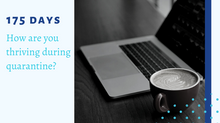Quick Tips on Working with Injured Athletes
- TBTG

- Feb 11, 2018
- 1 min read
Updated: Jan 10, 2021
There are four key areas to help gain a better understanding when working with injured athletes as described by S.J. Danish and A. Petitpas, and they are as follows:
Rapport building
Listen carefully and do not judge
Pay attention for the personal meanings associated to the injuries
Look for any associated issues
Make the athletes feel understood, heard, and accepted
Education
Obtain accurate information with regards to the injuries
Work with the athletes to ensure realistic understanding and expectations of recovery
Set realistic and appropriate goals when working with athletes
Skill development
Assess and target the appropriate self-help skills for the athlete
Goal setting
Relaxation techniques
Imagery
Executing a plan to implement skills will allow for evaluating progress during recovery
Identify and acknowledge barriers and roadblocks along the way and how to work around for successful recovery
Practice and evaluation
Athletes should now be applying their developmental skills as they recover from injuries regularly
Monitor the athlete’s progress and provide feedback and support
Recommend additional skills and training as applicable
When roadblocks occur, work with the athletes on action plans to move forward

Andersen, Mark B. (2005). Sport Psychology in Practice. Champaign, IL; Human Kinetics.












































Comments